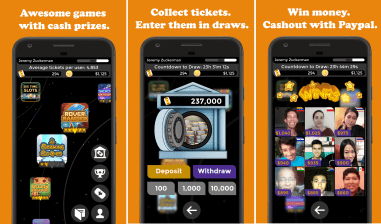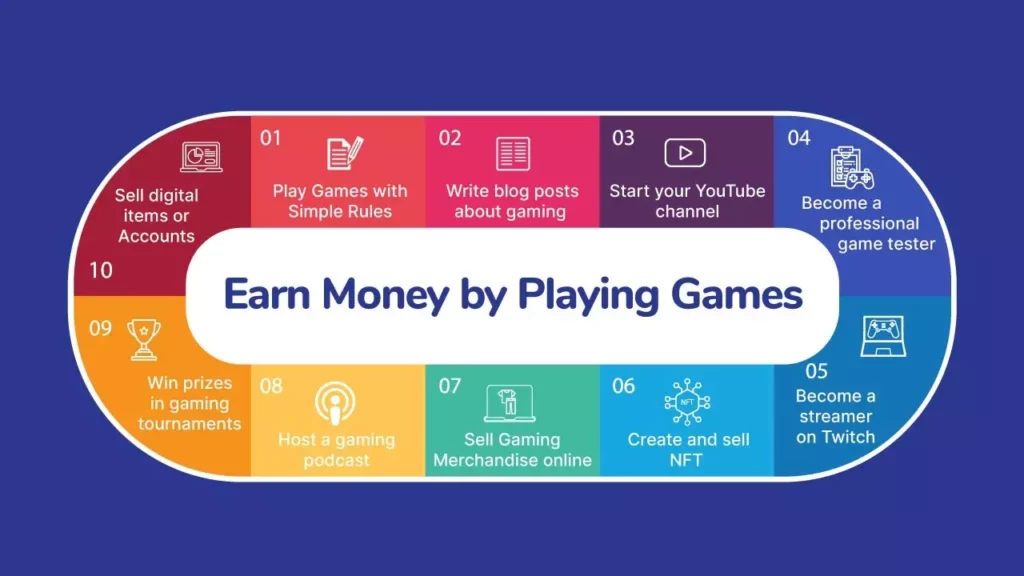Just How Play-to-Earn Games Are Revolutionizing the Pc Gaming Industry

Understanding Play-to-Earn Mechanics
The play-to-earn design has actually emerged as an innovative concept within the gaming sector, basically modifying the relationship in between players and the games they engage with. This model allows players to earn tangible rewards, frequently in the kind of cryptocurrencies or non-fungible tokens (NFTs), with their in-game activities. Unlike typical video gaming structures that typically monetize via subscription fees or one-time purchases, play-to-earn video games incentivize player participation by directly connecting gameplay success to real-world value.
At the core of play-to-earn technicians is the assimilation of blockchain modern technology, which guarantees transparency and provable ownership of in-game possessions. Gamers can acquire, offer, or trade these possessions in decentralized industries, equipping them with economic company previously hidden in conventional gaming environments. Each player's payment to the video game ecosystem-- be it via proficient play, critical trading, or neighborhood involvement-- enhances the overall pc gaming experience while providing them a chance to generate income.
As gamers invest time and sources, they not just deepen their involvement with the game however likewise cultivate a dynamic economic situation that mirrors their collective initiatives (play and earn rewards). This improvement of gameplay right into a monetizable endeavor is reshaping both player motivation and game style
Economic Effect on Players

Furthermore, play-to-earn versions democratize accessibility to economic benefits. Gamers from varying socio-economic histories can take part and possibly earn considerable income, connecting spaces that exist in standard work markets. This paradigm change cultivates financial independence, specifically in areas where employment possibility might be limited.
In addition, the intro of virtual economic climates allows gamers to build wealth with calculated investments in in-game properties, which can value with time. This has caused the appearance of a new class of players that approach play-to-earn as a serious income-generating activity, frequently resulting in the reinvestment of profits into the gaming ecological community itself. Eventually, the financial influence on gamers is extensive, as they navigate a landscape where recreation and livelihood assemble.
The Function of Blockchain Modern Technology
What makes blockchain technology a keystone of play-to-earn games is its capacity to offer transparency, safety, and decentralization. By using a distributed ledger system, blockchain makes certain that all transactions within the video game are tape-recorded in an unalterable manner, allowing players to confirm possession of in-game properties without counting on a central authority. This openness cultivates depend on amongst players, as they can separately verify the deficiency and provenance of digital things, improving their worth.
In addition, blockchain technology equips gamers via decentralization, allowing them to take part in peer-to-peer transactions. Gamers are no more constrained to in-game economic situations managed by programmers; instead, they can trade, market, or rent their properties openly in open markets. This shift not only enhances the general liquidity of digital properties but also motivates more meaningful gamer engagement, as customers can directly gain from their time and effort purchased the video game.
Furthermore, blockchain promotes the creation of wise contracts, which automate various in-game processes, from benefits circulation to governance devices. play and earn rewards. This development decreases the risk of fraud and makes certain fair game, more solidifying blockchain's important role in the development of play-to-earn gaming
Objections and challenges
Often, play-to-earn video games encounter significant obstacles and objections that can prevent their development and approval within the broader video gaming community. One key problem is the capacity for a speculative bubble, where the worth of in-game possessions can vary considerably, resulting in economic losses for players. This volatility threatens the stability that traditional pc gaming environments commonly use.
Moreover, the combination of blockchain technology usually increases inquiries about ecological sustainability. The energy intake associated with specific blockchain networks has stimulated arguments regarding the environmental impact of these video games. Movie critics argue that the carbon footprint created by play-to-earn platforms might hinder eco-conscious gamers.
In addition, there are concerns regarding accessibility and inclusivity. Numerous play-to-earn video games require players to invest substantial ahead of time capital to obtain needed assets, producing obstacles for those with limited funds. This design can accidentally create a divide between wealthier gamers and those that can not manage to participate.
Future Patterns in Pc Gaming
As the pc gaming industry proceeds to advance, numerous web future fads are arising that pledge Recommended Reading to reshape the landscape of play-to-earn video games and past. One considerable fad is the raising integration of blockchain technology, which enhances transparency and security in transactions. This will likely bring about better trust fund amongst players, encouraging wider fostering of play-to-earn designs.
Additionally, the increase of non-fungible tokens (NFTs) is readied to change electronic ownership, allowing gamers to genuinely have in-game assets. This change will certainly not only encourage players but additionally produce new financial chances within the virtual ecosystem. The convergence of pc gaming with other fields, such as social media and decentralized financing (DeFi), is anticipated to promote cutting-edge gameplay auto mechanics and monetization methods.
Furthermore, innovations in expert system and artificial intelligence will make it possible for a lot more personalized video gaming experiences, satisfying private gamer preferences and improving involvement. Finally, the expanding focus on community-driven development will likely influence video game design, as players progressively participate in shaping their pc gaming environments. Jointly, these patterns show a address transformative future for the gaming sector, where play-to-earn versions will play a central duty in redefining gamer interaction and value production.
Conclusion
Finally, play-to-earn games represent a considerable change in the pc gaming sector, fostering economic possibilities via cutting-edge mechanics that leverage blockchain innovation. This design not only equalizes access to monetary advantages for gamers from different socio-economic histories however likewise motivates area involvement and empowerment. Regardless of encountering challenges and objections, the possibility for future innovations recommends that play-to-earn video games will certainly remain to shape the video gaming landscape, providing new avenues for wealth creation and player participation.
The appearance of play-to-earn video games stands for a considerable shift in the gaming industry, improving the partnership in between players and the digital economy (play and earn rewards).The play-to-earn version has actually emerged as an advanced concept within the gaming sector, essentially altering the relationship in between players and the games they engage with. Unlike traditional pc gaming frameworks that usually monetize via registration charges or single acquisitions, play-to-earn games incentivize gamer involvement by directly connecting gameplay accomplishments to real-world worth
These cutting-edge gaming systems equip players to create real-world earnings through their in-game tasks, thus changing the typical notion of video gaming from a simple leisure activity into a sensible financial opportunity. Despite dealing with obstacles and objections, the possibility for future innovations recommends that play-to-earn games will proceed to shape the video gaming landscape, offering new opportunities for wide range development and player participation.
Comments on “Why Play to Earn Games Are the Future of Online Gaming and Financial Freedom”